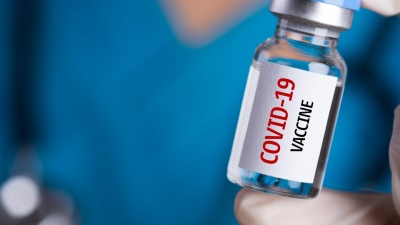Researchers at the Stanford University in the US found that the magnitude and quality of a key immune cell’s response to vaccination with two doses of the Pfizer-BioNTech Covid-19 vaccine were considerably lower in people with prior SARS-CoV-2 infection compared to people without prior infection.
In addition, the level of this key immune cell that targets the SARS-CoV-2 spike protein was substantially lower in unvaccinated people with Covid-19 than in vaccinated people who had never been infected.
Importantly, people who recover from SARS-CoV-2 infection and then get vaccinated are more protected than people who are unvaccinated.
These findings, which suggest that the virus damages an important immune-cell response, were published in the journal Immunity.
Led by Mark M. Davis, Professor of microbiology and immunology at Stanford’s School of Medicine, the researchers designed a very sensitive tool to analyse how immune cells called CD4+ T cells and CD8+ T cells respond to SARS-CoV-2 infection and vaccination.
These cells coordinate the immune system’s response to the virus and kill other cells that have been infected, helping prevent Covid.
The tool was designed to identify T cells that target any of dozens of specific regions on the virus’s spike protein as well as some other viral regions. The Pfizer-BioNTech vaccine uses parts of the SARS-CoV-2 spike protein to elicit an immune response without causing infection.
The investigators studied CD4+ and CD8+ T-cell responses in blood samples from three groups of volunteers. One group had never been infected with SARS-CoV-2 and received two doses of the Pfizer-BioNTech Covid-19 vaccine. The second group had previously been infected with SARS-CoV-2 and received two doses of the vaccine. The third group had Covid-19 and was unvaccinated.
The researchers found that vaccination of people who had never been infected with SARS-CoV-2 induced robust CD4+ and CD8+ T-cell responses to the virus’ spike protein. In addition, these T cells produced multiple types of cell-signalling molecules called cytokines, which recruit other immune cells — including antibody-producing B cells — to fight pathogens.A
However, people who had been infected with SARS-CoV-2 prior to vaccination produced spike-specific CD8+ T cells at considerably lower levels — and with less functionality — than vaccinated people who had never been infected.
Moreover, the researchers observed substantially lower levels of spike-specific CD8+ T cells in unvaccinated people with Covid than in vaccinated people who had never been infected.
Overall, these findings suggest that SARS-CoV-2 infection damages the CD8+ T cell response, an effect akin to that observed in earlier studies showing long-term damage to the immune system after infection with viruses such as hepatitis C or HIV.
“The new findings highlight the need to develop vaccination strategies to specifically boost antiviral CD8+ T cell responses in people previously infected with SARS-CoV-2,” the researchers said. (IANS)
















